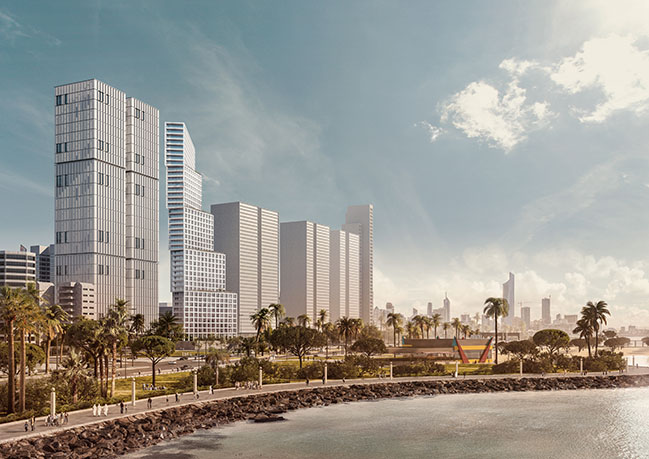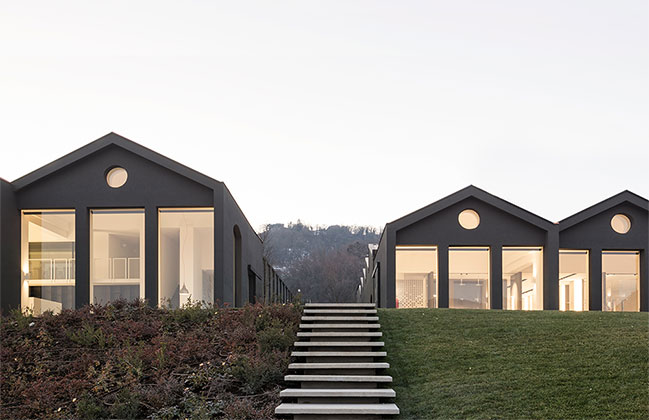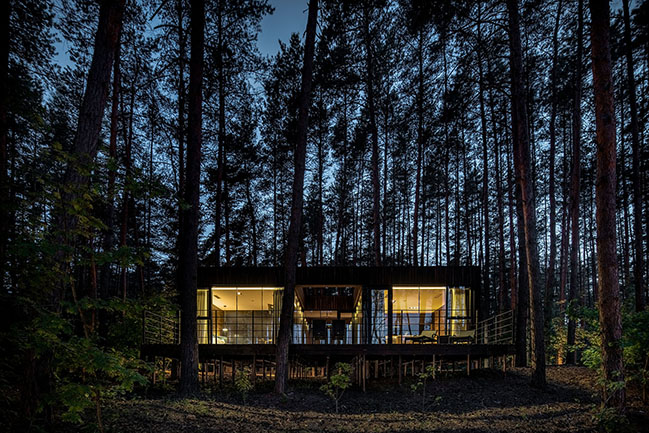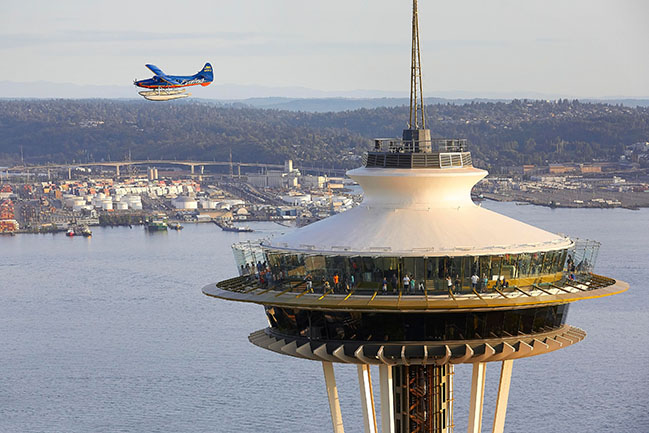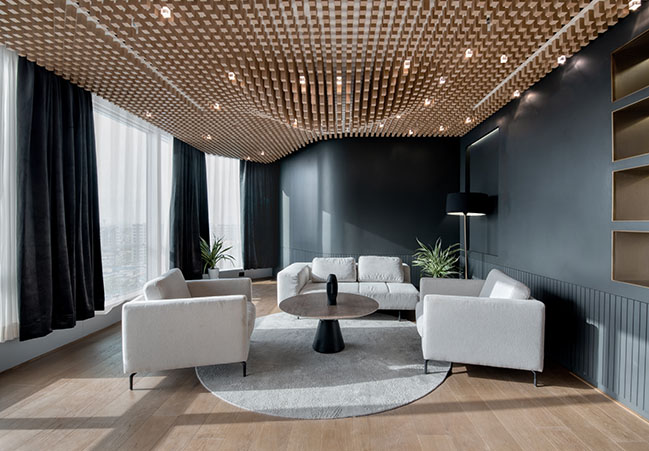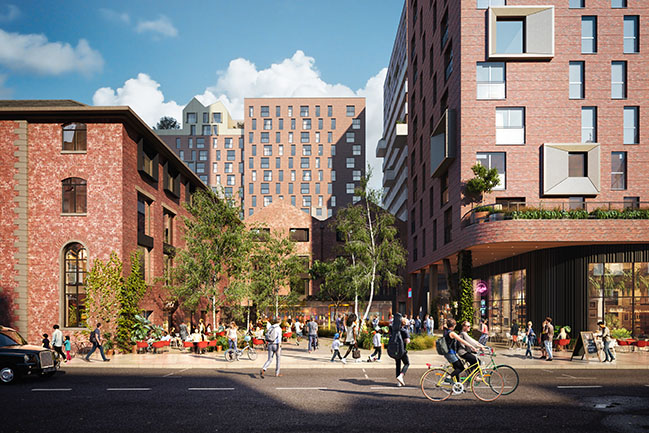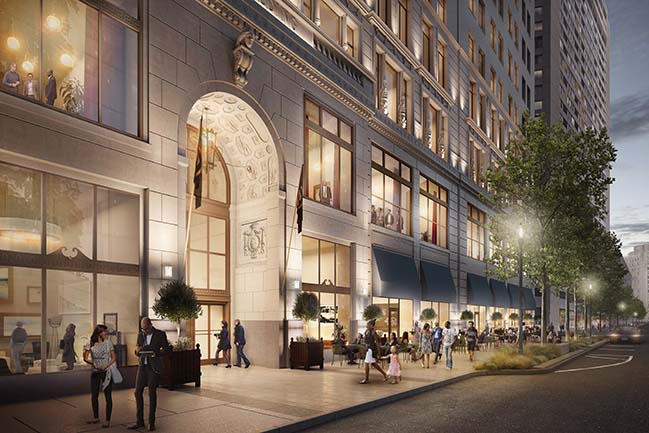10 / 21
2019
The Pavilion, officially unveiled in collaboration with the Italian Ministry of Foreign Affairs and the U.A.E., is made out of three boats, which will embark on a figurative journey to Dubai and will be converted into the roofscape of the structure before moving on after Expo 2020 – as an exploration into recycling, circularity and digitally reconfigurable architecture.
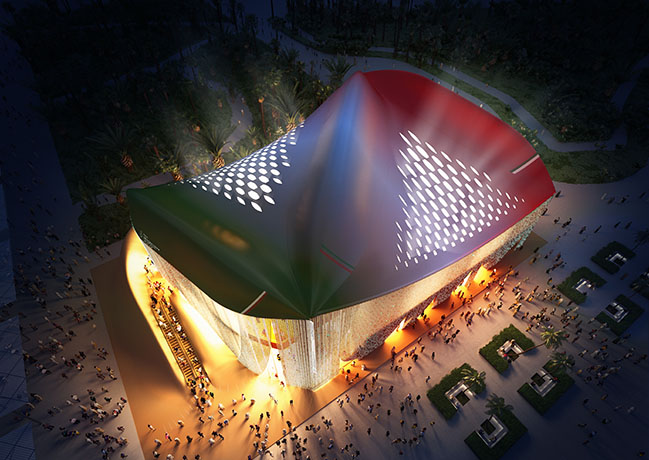
Exactly one year before the opening of the World Fair in Dubai (Expo 2020), Italy unveils the final design for its national pavilion, conceived by CRA-Carlo Ratti Associati, Italo Rota Building Office, atteogatto&associati and F&M Ingegneria. As if docking after a journey by sea, three boats will arrive in Dubai and become the backbone of the pavilion, part of an exploration into recycling, circularity and reconfigurable architecture. The Pavilion will open its doors to the public on October 20th, 2020, in Dubai, U.A.E., and will remain open until April 10th, 2021.
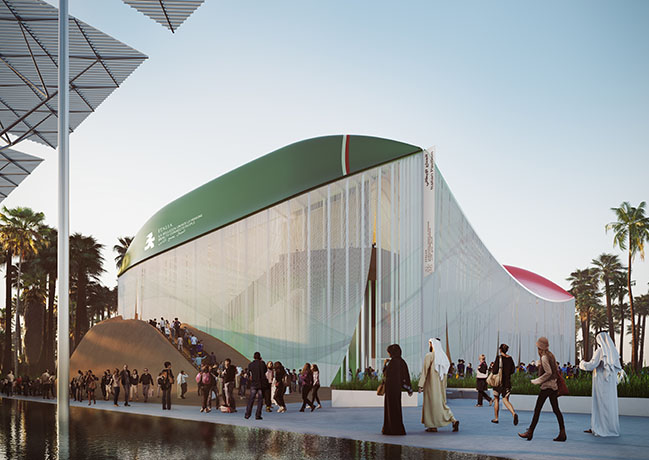
The radical design is based on a circular approach to architecture. Three boats will arrive in Dubai and will be converted into the pavilion’s roofscape. In a similar way, the project integrates sustainable materials – such as orange peels, coffee grounds, mycelium and recycled plastic extracted from the ocean – as construction elements.
The pavilion is exposed to the atmosphere, using natural climate control strategies instead of air conditioning. Space is delimited by an adaptable façade made of LED curtains and nautical ropes, which will create a digital layer able to broadcast multimedia content.
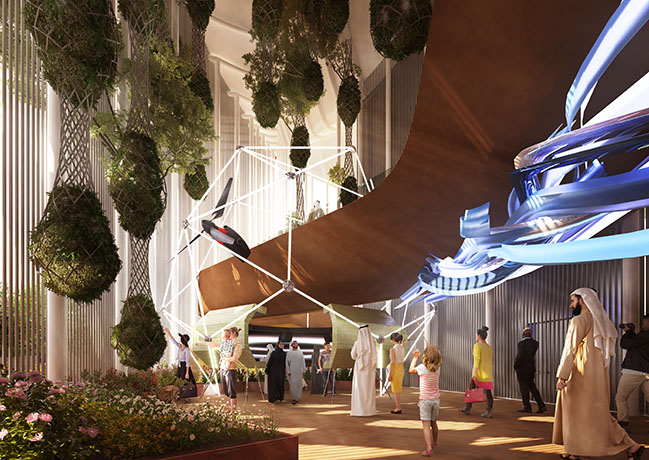
“We liked the idea of a pavilion that would continuously mutate into different forms,” says Carlo Ratti, founding partner of CRA practice and director of the MIT Senseable City Lab at the Massachusetts Institute of Technology (MIT). “We pursued a kind of architecture that could be reconfigured both in the long term – because of its circularity – and in the short term – thanks to digital technologies.”
“The pavilion is circular in nature. Nothing goes to waste; instead, we reclaim it and reimagine its purpose,” says architect Italo Rota, founding partner of Italo Rota Building Office. “The sea will figuratively enter the structure through one of its living organisms, seaweeds, which will be used to produce energy and food.”
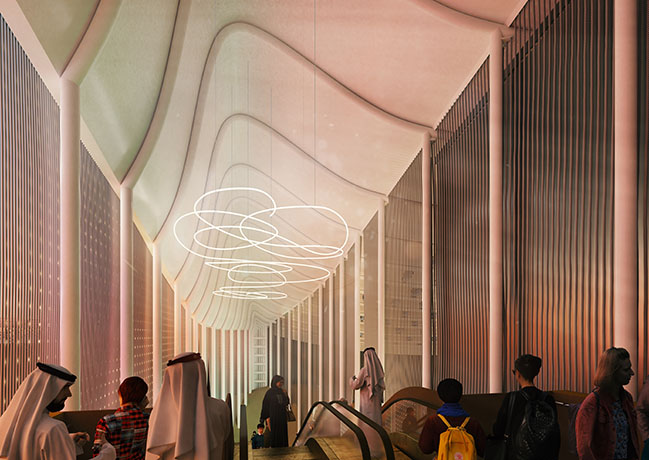
The pavilion’s roof is a sinuous surface that recalls sea and desert waves. The base of the pavilion is carved out of a giant sand dune, accessible to people. The project makes a conscious effort to integrate materials that hint at Dubai’s local geography as well as organic waste to experiment with more sustainable building practices and engage with the circular economy. For instance, the exhibition will stretch over a dune made with real sand, while the skywalk will be clad in innovative materials obtained from discarded orange peels and used coffee grounds.
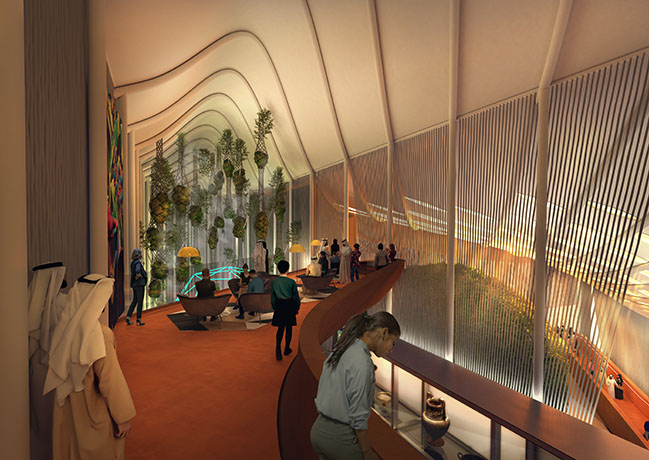
The project explores the importance of history, tradition and memory in sparking innovation, while paying tribute to the seafaring populations that have inhabited the Mediterranean basin through history, shaping a common cultural heritage.
"Italy brings an Innovation Hub to Expo 2020,” says Paolo Glisenti, General Commissioner for Italy at Expo Dubai 2020. “A pavilion with an innovative structure, inspired by the most advanced elements of sustainability and circular economy, which will not simply be an exhibition venue, but a demonstration of Italian competence and the best national talent”.
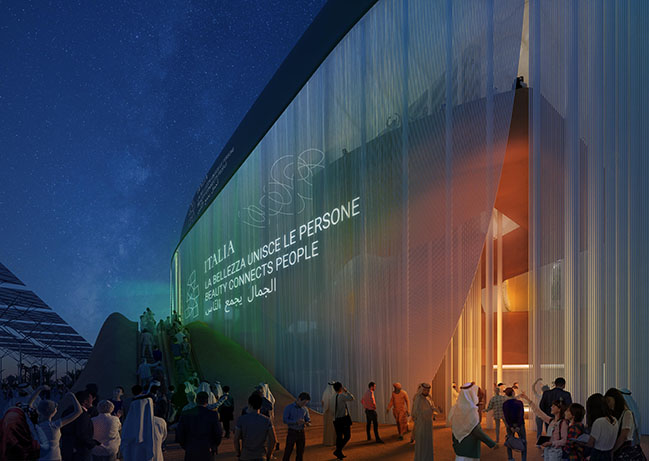
The pavilion continues CRA’s ongoing experimentation with innovative exhibition structures at World Fairs. Previous projects include the Digital Water Pavilion, a water-based structure at Expo Zaragoza 2008 that employed sensors to interpret and react to people’s movements–and was named by Time magazine one of the “Best Inventions of the Year”– and the Future Food District, an interactive retail space developed for Expo Milan 2015.
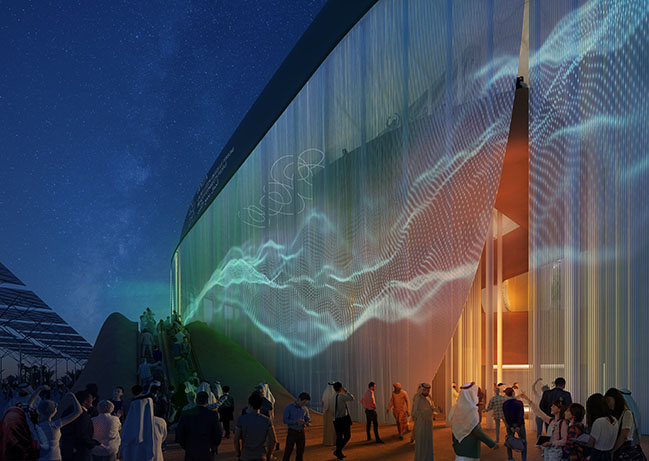
Architect: CRA-Carlo Ratti Associati and Italo Rota Building Office, with matteogatto&associati and F&M Ingegneria
CRA Team: Carlo Ratti, Saverio Panata (Project Manager), Francesco Strocchio (Project Leader), Monika Löve (Project Leader), Alberto Benetti, Luca Bussolino, Mario Daudo, Luca Giacolini, Serena Giardina, Alberto Geuna, Gerolamo Gnecchi, Andrea Fasolo, Francesca Marino, Lucia Miglietta, Nicola Scaramuzza, Ina Sefgjini, Alessandro Tassinari, Giovanni Trogu, Davide Ventura
Italo Rota Building Office team: Italo Rota, Francesca Grassi, Francesco Lato, Omid Mohammadi, Gilberto Piano, Sammy Zarka
matteogatto&associati team: Matteo Gatto, Edoardo Perani, Paolo del Toro
F&M Ingegneria team: Sandro Favero, Federico Zaggia, Luigi Ranzato, Mirco Zuin, Mauro Baessato, Dino
Casagrande, Davide Pizzolato, Marco Furlanetto, Antonio Nuzzo, Nicola Ros, Francesca Favero, Rade Batinica, Marco Bonaldo, Hazem Abdul Karim, Abid Pasha, Nicola Ferrari, Roberto Maffei
Creative Director: Davide Rampello, Studio Rampello and Partners
Renderings by CRA graphic team: Gary di Silvio, Pasquale Milieri, Gianluca Zimbardi
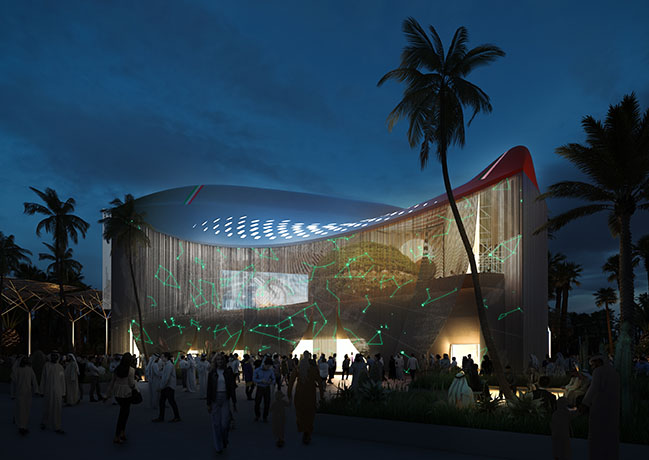
YOU MAY ALSO LIKE:
> Dutch Pavilion for Dubai Expo 2020 by V8 architects
> Spain Pavilion at Expo 2020 Dubai by amann-canovas-maruri
Carlo Ratti Associati unveiled final design for Italian Pavilion at Expo Dubai 2020
10 / 21 / 2019 The Pavilion, officially unveiled in collaboration with the Italian Ministry of Foreign Affairs and the U.A.E., is made out of three boats...
You might also like:
Recommended post: ODA Architecture Tapped for Detroit Book Tower Rehabilitation
